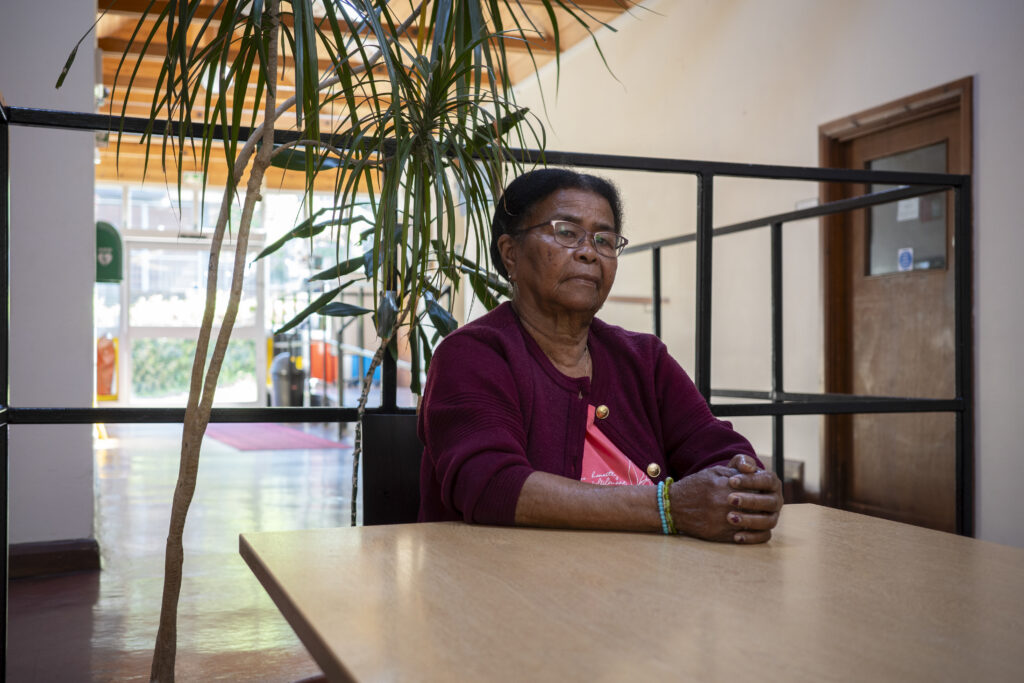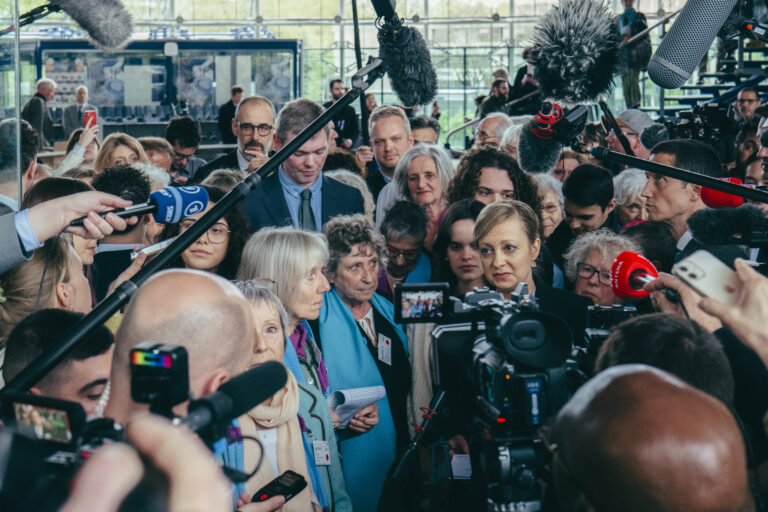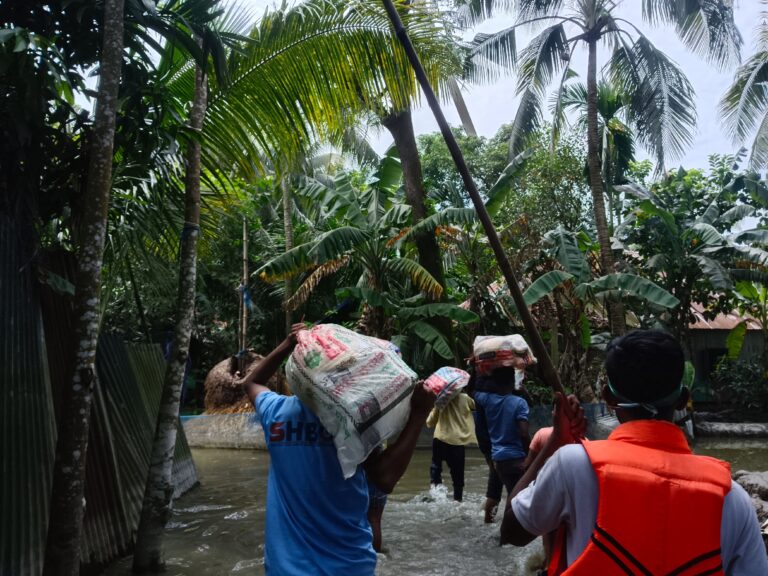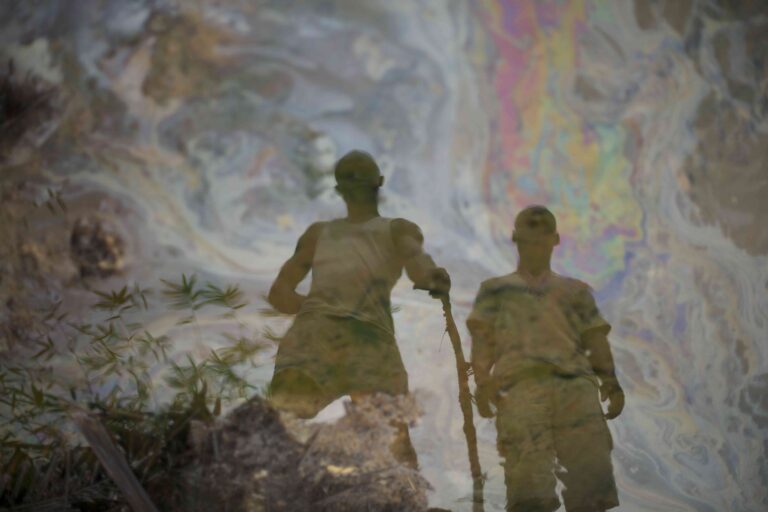At the age of 13, Lucy Siatouss was exiled from her home island of Peros Banhos in the Chagos Archipelago, located in the heart of the Indian Ocean. Over 50 years since the Chagossian people were exiled, she is one of the eldest members of the displaced community in Crawley, England. She is one of the few who still remember Chagos’s thriving wildlife, “all the horses, a lot of donkeys,” she says, and how the fishermen would share their abundant catch with the community.
Upon entering the community centre just one hour south of London, it’s immediately apparent that this is a close-knit group. There are around 50 Chagossians at this week’s lunch club, most of whom are already playing their favourite game of bingo. A traditional Chagossian curry is served, and guests are welcomed into the community. Yet there is a sense that many are not so keen to answer questions.
“They’ve spoken about this so much that they’re tired,” explains community organiser Jemmy Simon. “It’s always the same questions that don’t amount to much.” There’s a heaviness in the hall, and many faces share the same, pained look.
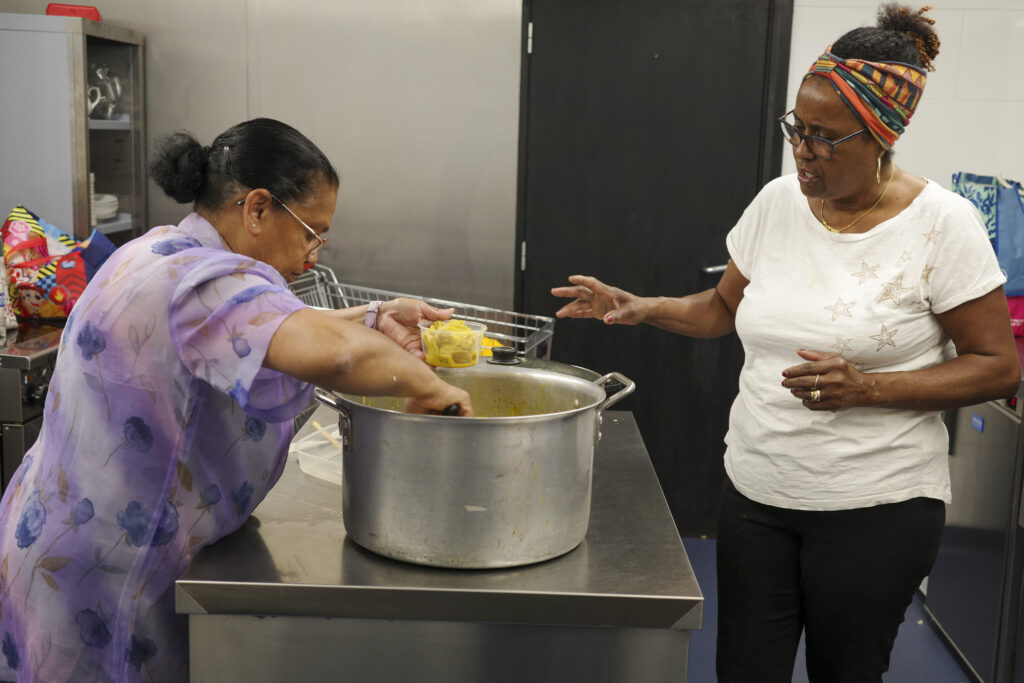
The Chagossian people, the islands’ original inhabitants, were forcibly exiled to Mauritius and the Seychelles by the British between 1967 and 1972. The islands were colonised and the US Navy was handed use of the largest island, Diego Garcia, as a military base.
The Chagossians have been divided between Mauritius, the UK, and the Seychelles ever since, and are still fighting to return home on their own terms.
On 22 May, the UK signed a deal to hand over the Chagos Archipelago to Mauritius, leasing back Diego Garcia for £101m each year for military use. The deal states that Mauritius is “free to implement a programme of resettlement” and that the UK will establish a trust fund for Chagossians, with the treaty admitting “a deeply regrettable legacy.” A paragraph on the environment adds that both countries will work “with applicable international law on environmental protection.”
The community is far from optimistic. Maxwell Evenor, a former spokesperson for Chagossian Voices, says that there has long been no consultation with their groups in the UK. “It’s just another government saying whatever they want,” Evenor says.
Beatrice Pompe, who was born on Diego Garcia, issued a last-minute legal action against the deal, arguing that the Chagossian people had not been given a say in the future of the islands. Her bid was dismissed on the day, leaving her to comment that British officials “still want to give a deaf ear to our cries.”
If we are not preserving all these histories from the elders, it will be gone.
Maxwell Evenor
Like most members of the Chagossian community in Crawley, Marie Othello was not born on the islands. She remembers her parents describing how “everything just felt very clean and very pure, like the air, the fresh water. [They were] free to do what they wanted, fish when they wanted.”
Odette Botjeanne was part of a select group of Chagossians allowed to visit the islands for 15 days in 2017. She tears up thinking about the beauty of the archipelago: “It’s small, but it’s got power.”
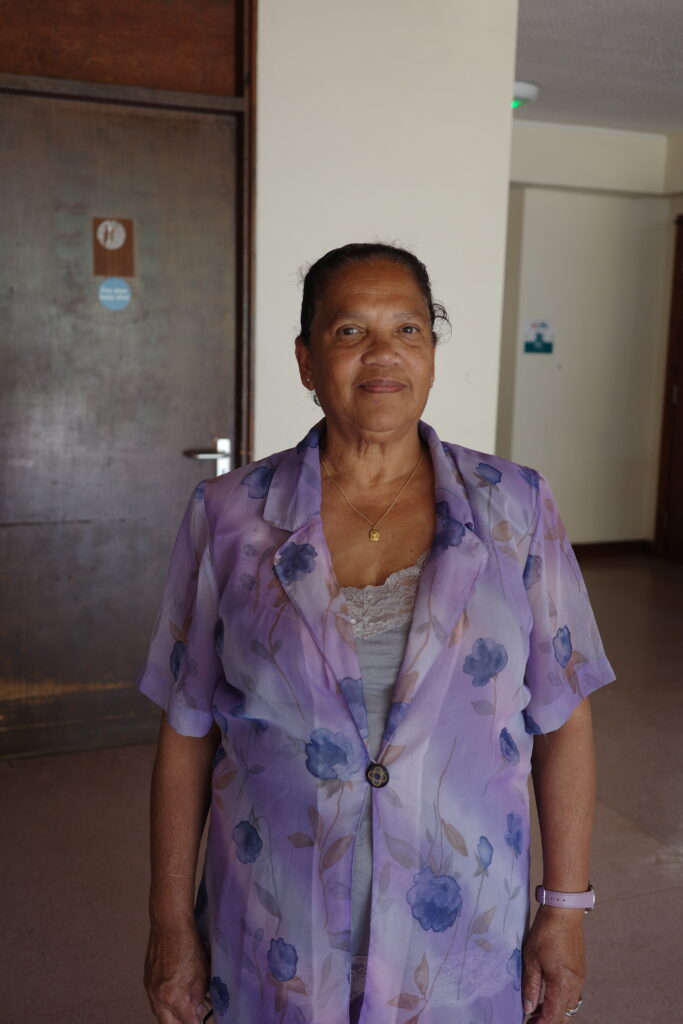
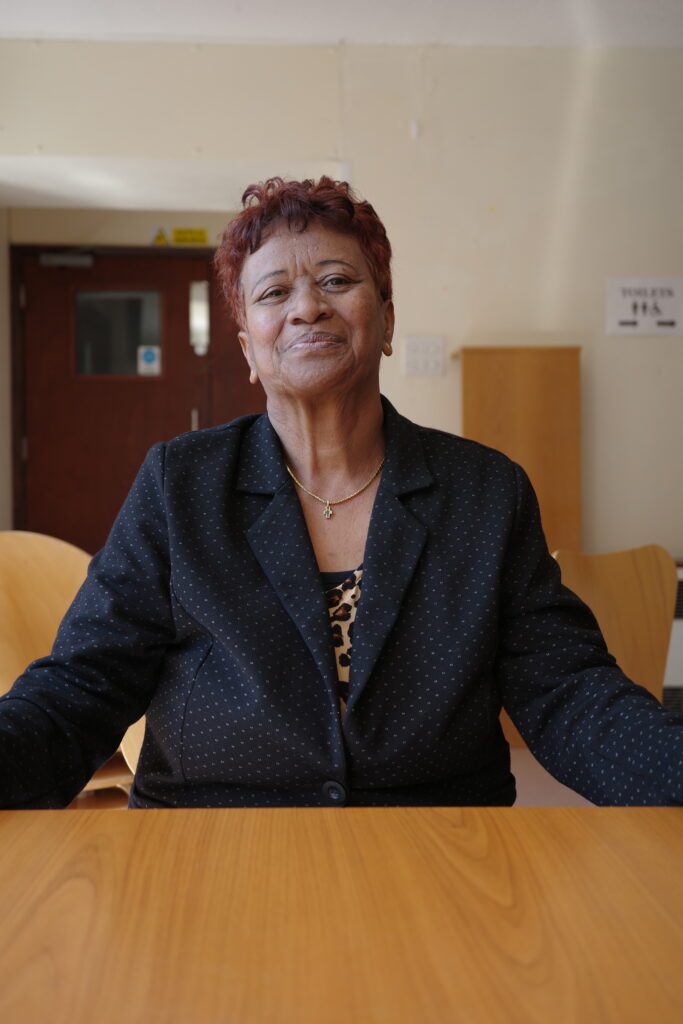
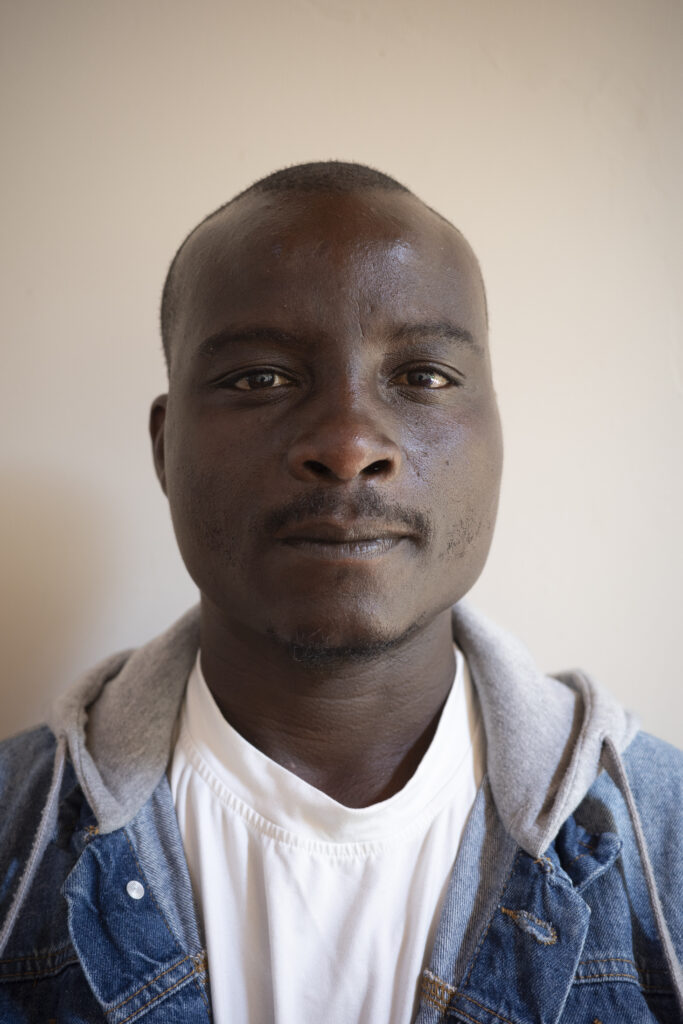
Since the Chagossians have been away, this has “completely changed”, says Siatouss, with many homes “taken over by nature”. They’ve also started losing many of the places where they used to play to rising sea levels.
Evenor says it is no surprise the environment has struggled since their exile because Chagossians lived in harmony with land and sea for over 200 years. “Just like there is a crime against humanity, against us, I think that our environment has also been violated,” he says. They would have known how to protect the islands, while the UK “doesn’t have a big interest in climate change,” Evenor suggests.
Yet several scientists are now anonymously questioning the logistics of Chagossians resettling on the islands. One says this is “out of the equation” because it would require expensive infrastructure – like an airstrip – in a harsh and remote location. A 2014 feasibility study conducted by KPMG, a global advisory service, stated that any long-term resettlement would be “precarious and costly.”
We want our land to be there for generations and generations.
Maxwell Evenor
The outlook is not all gloomy. The study does admit that “short-term habitation for limited numbers on a subsistence basis would in theory be possible.” Adam Moolna, a lecturer in environment and sustainability at Keele University, says that “with people present and active intervention, we would have no problem maintaining the islands.” Moolna suggests that a potential solution to this “wicked problem” would therefore be to harness Chagossian wishes to live and work in the islands with conservation needs, providing the human capital needed for ecological action.
With limited resources, it is difficult to enforce preservation in areas like the Chagos Marine Protected Area, warns Moolna. After all, the Chagos Archipelago spans 250,000 square miles, two and a half times the size of the British Isles.
Dr Peter Carr, programme manager at the Chagos Conservation Trust – and thought to be the only person to have visited every island in the archipelago – agrees. He points to the possibility of Chagossians manning research stations “a bit like in Antarctica” and maintaining cultural heritage sites. He cries as he remembers hosting a few of the visiting Chagossians and running reforestation courses for their younger kids. “It was an enormous privilege,” he says.
Evenor agrees that “we need to work with environmental protection agencies, because we want our land to be there for generations and generations.” He adds that Chagossian involvement is “an opportunity for better preservation, because we have always lived in harmony with nature.”
He warns, however, that the longer the Chagossians in the UK are not consulted, the more likely this opportunity will be missed. “My great grandma is dead. My grandma is dead. My grandpa is dead … If we are not preserving all these histories from the elders, it will be gone.”
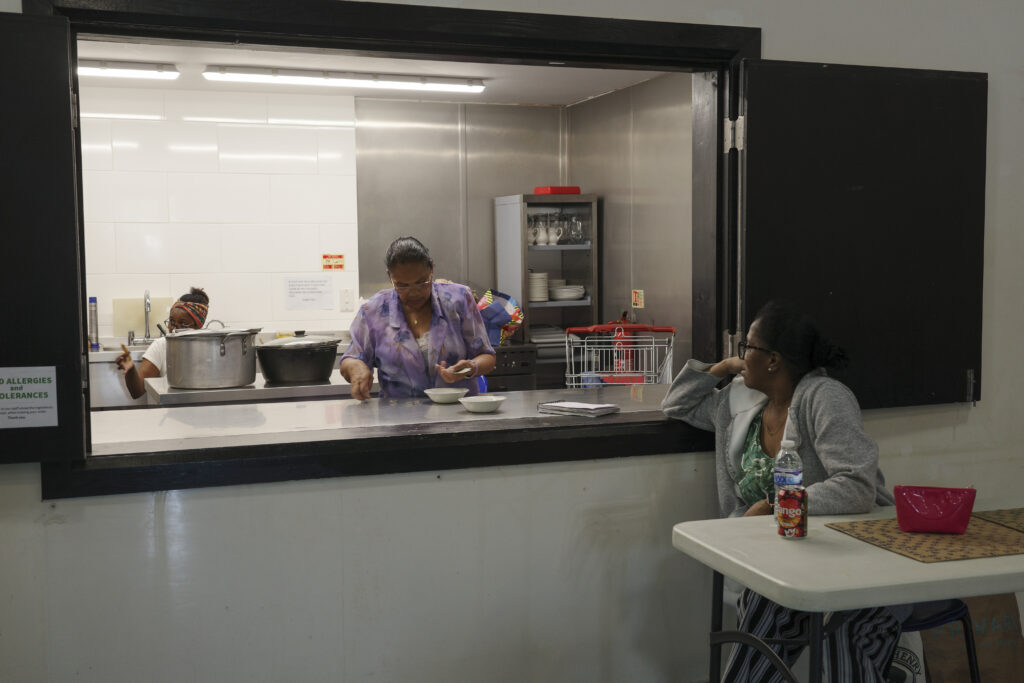
As plates of curry are cleared away and the last bingo numbers are called out, the community is thanked for their generosity and applause breaks out throughout the centre. The heaviness is still there, but Evenor emphasises privately that “we’ll get somewhere.”
“We’re supposed to be nonexistent, but here we are.”

